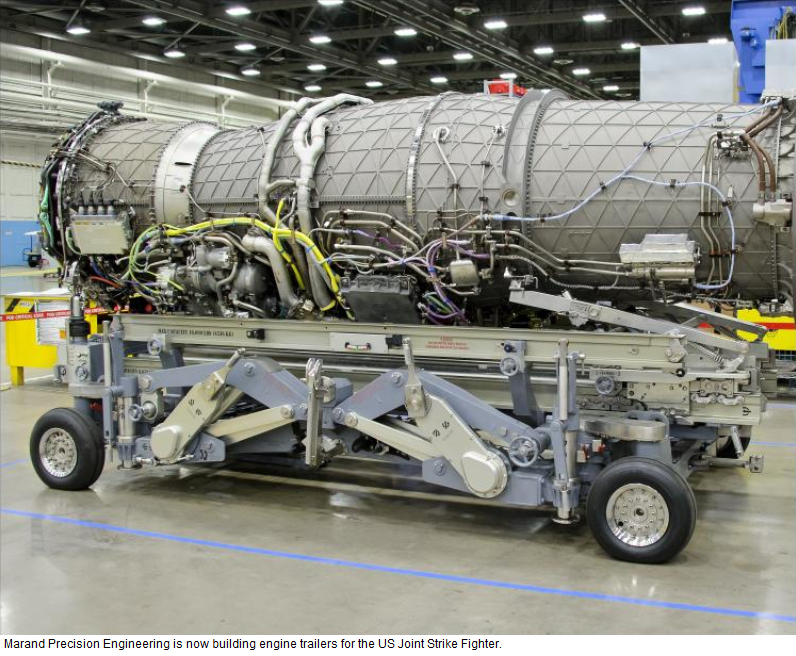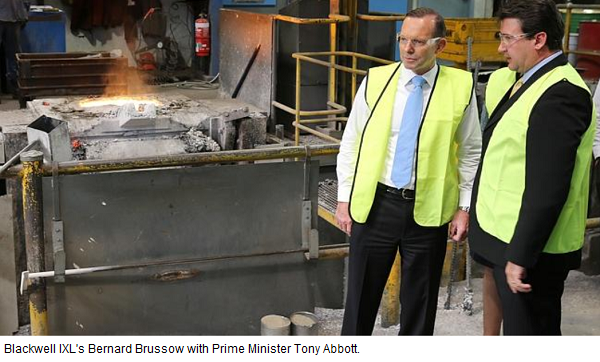Surviving the end of auto manufacturing
Australia's automotive manufacturing industry will shutdown in 2017, with Holden, Toyota and Ford all pulling out of the country.
But it's not the end of family businesses in the auto-parts and manufacturing industries. For sure, some companies will go under or be snapped up. But the ones that survive will have adapted.
Many saw the writing on the wall years ago and got ready. One is Marand Precision Engineering, a family business based out in Moorabbin, Victoria. Marand was set up in the 1950s by Andy Ellul, who learned the tools of his trade in the General Motors Holden tool room at Fishermans Bend.
Marand framed its offering differently, switching from automotive supply -- where it produced goods like jigs and tooling, metal cutting machine tools, special purpose leak testing machines, machine tools and robotic equipment -- to precision engineering. The company has since expanded into the aerospace, mining, medical and defence industries, producing Australian-made F-35 Lightning II Joint Strike Fighter vertical tails.

Another family business is AW Bell, established in 1952 by Alan Bell and now run by his son Geoff. Now the country's biggest producer of investment castings, a manufacturing process that casts metal into a mould, the company has been transformed in response to changes in the auto industry.
In 1972, the auto industry generated 90 per cent of its turnover, but now it's just 8 per cent. Instead, AW Bell has moved into areas like defence and the medical field. “We supply goods for the F-35 fighter,'' says Mr Bell. “We do quite a bit for the Australian Defence Force, we do quite a bit for the Submarine Corporation and we export a lot of stuff, [such as] castings, to Germany.”
The company has also done work with the CSIRO, which now sees it producing aluminium alloys with higher properties than any other producer in the world.
“What that means is that, certainly for the aircraft industry, and strangely enough for a lot of industries, we can offer the same material that they specify. We can offer them higher properties, which means they can either put more strain and pressure on it or they can reduce the weight of the part.”
He says this can also be used in the manufacture of submarines and military vehicles.
Mr Bell says it was a slow transformation over a period of time, but the company had no choice with the reduction and systematisation of suppliers.
“We had to accept the fact that we were making tooling and that there was a whole change in the auto industry's attitude,'' Mr Bell says. “We always were looking for ways to use the experience we had to move into other areas, into other fields. We looked at reinvesting in processes that complemented our systems, so over that period of time we went from tooling to investment casting, and machining. We also build machines we export all over the world for the casting industry.
“You have to adjust and adapt and change continually, and you look for markets where you don't have to compete with low-wage, low-value countries.”
Geelong-based Blackwell IXL, part of the IXL group, which has been with the Blackwell family for 156 years, is weaning itself off the auto industry and expanding into new markets.
Its major customers have included Ford, GM Holden and Toyota. The company has produced wheelhouse stampings, engine and exhaust system heat shields, acoustic shields, armrest support brackets and full-length bumpers.
“We are consolidating as many auto businesses as we can in the interim, creating a platform and critical mass up to a point of departure from the automotive industry in Australia,'' says its chief executive Bernard Brussow.
“We are staying in automotive in Australia until the end of that period, and in the interim we have consolidated and bought out another supplier, so we will increase our critical mass until the end of 2017. That will then give us a platform that will let us look at other markets and resources to diversify.”
Mr Brussow says the company would be looking to build components and parts for the building and mining industry.

“We are looking at additional resources and focusing on those markets, trying to determine what their needs are and upskilling our people to cope with that,'' he says.
“In the meantime we are looking at other markets we can get into using the same equipment and technology.'' That would include working with the auto industries in Thailand and Malaysia.
What helps is that Blackwell IXL is also a diversified company, making appliances like heat exchangers and combustion boxes. The other important ingredient, says Mr Brussow, is its history of adaptation to changing market conditions.
“The company has been around for 156 years,'' he says. “If I go through the 150 yearbook on the journey there have been many times of radical change that have presented themselves to the organisation.
“They started making cast iron stoves and certainly, if they had continued that, they wouldn't be around. It's in the DNA of the organisation -- innovation, looking at different markets, trying to be realistic about it as well.”
Another family business, the Stillwell Motor Group, has been forced to centralise its warehousing, sales and despatch in response to price-driven supply chain pressures and has diversified the business through acquisition.
Michael Stillwell says the company last year acquired another family-owned business, Logicar, which operates in a niche.
“Their field is automotive electronics into the after-market, so they provide the computer systems, the fuel injection systems, the ignition systems to repair a whole range of different products … for the dealer and non-dealer network,'' Mr Stillwell says.
“It's not so much diversification as it is creating a niche that we can expand. As an organisation we are committed to growth. The main focus of that growth will be auto retail, but we are expanding the automotive support of our business.”
Even the auto supplies' after market, which is not affected by the withdrawal of the three big car makers, has been forced to make adjustments to stay in business.
Dean Talbot, managing director of family business Auto Surplus, says his company is now generating 30 per cent of its turnover from eBay. He expects it can only go higher.
“There were parts we used to sell by the truckload, and overnight we didn't sell any because people were selling them online and the price difference was so big. So it was an easy decision for people to say, they'll come to us for stuff they can't get online,'' Talbot says.
“It's one of those things that you have to join or you're not going to be around. I see more and more stuff going online and businesses that aren't going online will not survive. There's no chance.”
For the auto-parts industry, it's a simple mantra: adjust and adapt, or die.
















